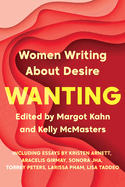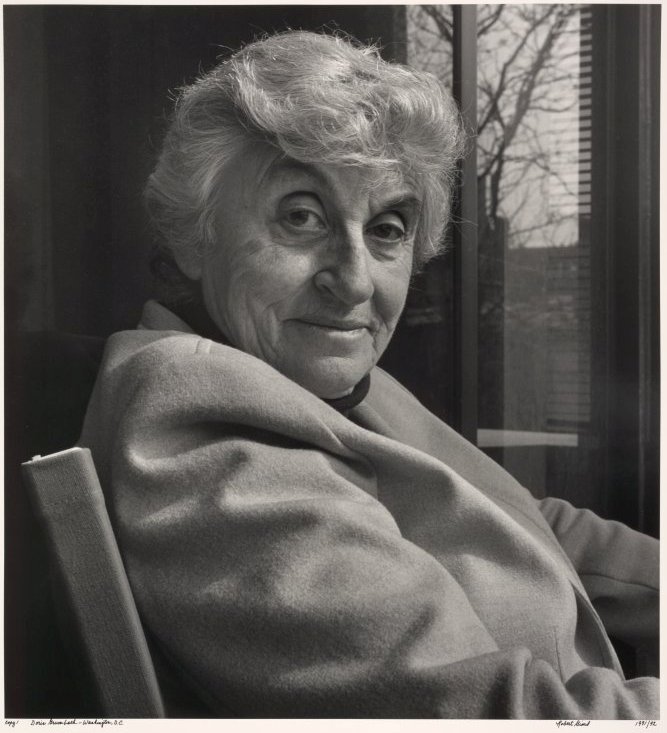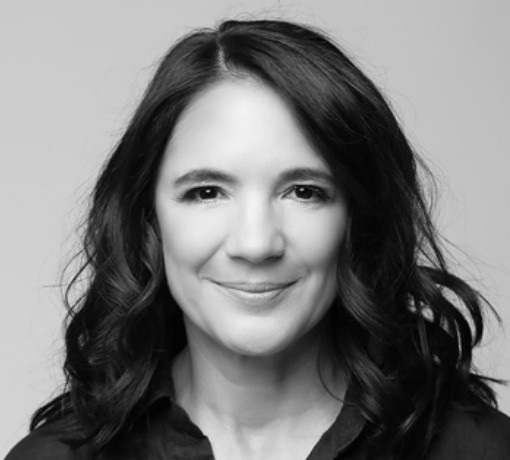 Victoria Garza received her MFA in film production from New York University's Tisch School of the Arts and has been a documentary filmmaker, creative director, and content strategist. She is currently a senior writer for Apple. Her debut memoir, The Field (out now from Jackleg Press), traces the childhood loss of her sister and explores its impact on her experience of grief. Garza recently moved from Los Angeles, Calif., to the San Francisco Bay Area, where she lives with her wife and their two children.
Victoria Garza received her MFA in film production from New York University's Tisch School of the Arts and has been a documentary filmmaker, creative director, and content strategist. She is currently a senior writer for Apple. Her debut memoir, The Field (out now from Jackleg Press), traces the childhood loss of her sister and explores its impact on her experience of grief. Garza recently moved from Los Angeles, Calif., to the San Francisco Bay Area, where she lives with her wife and their two children.
Handsell readers your book:
Seemingly free-associatively, The Field is a grief memoir that switches among three narrative threads that when woven together form an archeology of memory--a search for the philosophical, spiritual and scientific implications of grief.
On your nightstand now:
I blame my two toddlers for being a few years behind on my reading--which is why I'm always revisiting some cherished favorites, like Mercè Rodoreda's My Christina & Other Stories and, of late, Carmen Maria Machado's Her Body and Other Parties--which always blows my mind, as does Grand Union by Zadie Smith. And always a few select books of poetry, like Pablo Neruda's The Yellow Heart or Jane Miller's A Palace of Pearls--which feels like a familiar foreign movie to me. Then there are small doses of inspiration like This Is Water by David Foster Wallace. You see the trend here, short stories or poetry--which I can consume in small doses--like an IV drip--these are my favorite forms right now.
Favorite book when you were a child:
Madeleine L'Engle's A Wrinkle in Time was my first exposure to the so called supernatural and now that I think of it, as a young adult, I was very attracted to questions of spirituality and purpose, as the characters were in constant tension with the conflicts of love, divinity and the idea of goodness. Then there was the Little House on the Prairie series by Laura Ingalls Wilder. My elementary school librarian would set the next book aside for me when I came to the library with my class, so that I didn't have to waste any time looking for them.
Your top six authors:
Marguerite Duras, for the sheer intellectual power and economy of her dangling sentences; Anne Carson for flipping form on its head; Zadie Smith, for never-ending poignant moments; J.M. Coetzee, for the moral voracity of his immense body of work; Joan Didion, for her cross-genre brilliance; and Gabriel García Márquez, for perfecting literary magic and showing me a language that makes sense to my Latina soul.
Book you've faked reading:
Victor Hugo's Les Misérables. I'm not sure I would say I exactly faked reading this book, as I read everything that was pertinent to the main thread of Jean Valjean, but the rest I skipped over--which is a formidable amount, considering a quarter of this novel is made up of the purposeful digressions.
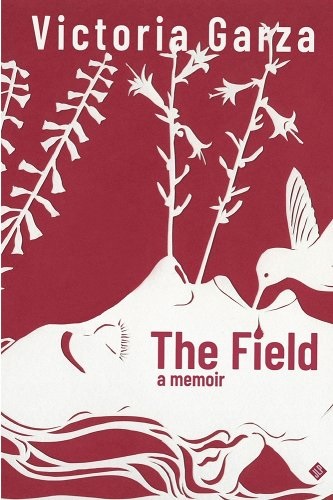 Book you're an evangelist for:
Book you're an evangelist for:
A Theory of Everything by American philosopher Ken Wilber. He posits the perennial question of whether it's possible to have an "integral vision... [which] attempts to include matter, body, mind, soul and spirit as they appear in self, culture, and nature." I am in awe of his thinking toward more wholeness and less fragmentation and his inclusion of spirituality in the pursuit of intellectual ideas.
Book you've bought for the cover:
Einstein's Dreams by Alan Lightman. If I recall, I bought this book at the airport. Its diminutive size is in direct contrast to the massive poetic ideas inside it. It remains the "big book" I go back to over and over again.
Books that changed your life:
The Autobiography of Alice B. Toklas by Gertrude Stein (need I say more? I think not). And Poser: My Life in Twenty-Three Yoga Poses by Claire Dederer, which changed my relationship to memoir because of its brutal, funny and tender honesty at all times--and this was even before I became a mom.
Favorite line from a book:
"All the conditions of her life, all her own instincts, were hostile to the state of mind which is needed to set free whatever is in the brain." --Virginia Woolf, A Room of One's Own.
While talking about the "unhappy woman" with gifts of poetry in the 16th century, "a woman at strife against herself," the sentiment still requires female writers to be vigilant--always--against the impossible feat of carving out space (a room) and time (silence) to write.
Six books you'll never part with:
On Writing, Marguerite Duras
The Disappearance, Geneviève Jurgensen
Plainwater, Anne Carson
Waiting for the Barbarians, J.M. Coetzee
A Heartbreaking Work of Staggering Genius, Dave Eggers
Book you most want to read again for the first time:
Orlando: A Biography by Virginia Woolf, as much for its inspiration and backstory on Vita Sackville-West as for the book itself. Meaning, more than being a story about the adventures of a poet who changes sex from man to woman and lives for centuries, this story was so daring and the irony that it was her most popular book. I'm also a filmmaker, and Tilda Swinton as Orlando in Sally Potter's film just cemented this brilliance in my mind.
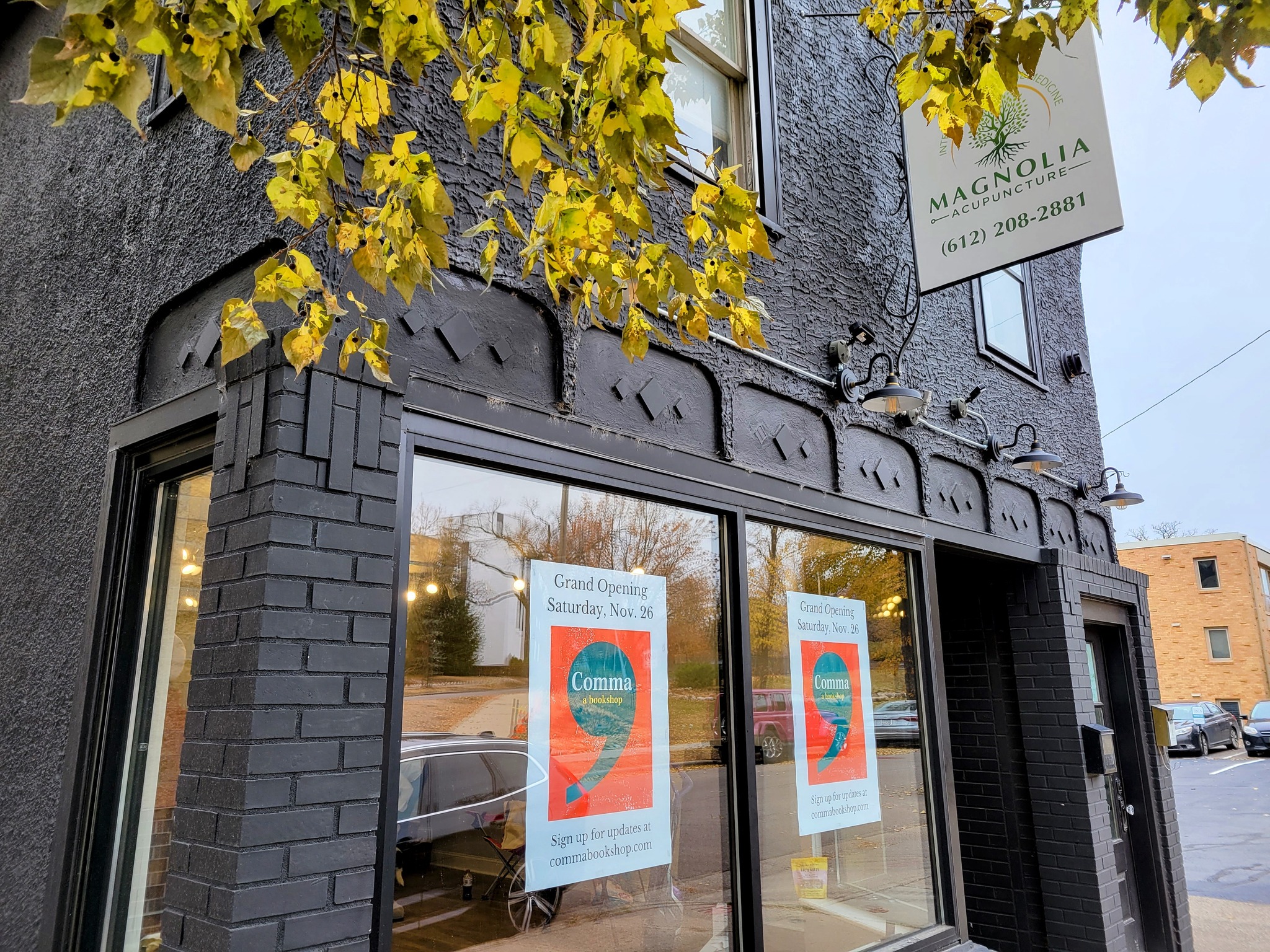 Comma, a Bookshop is opening this month in Minneapolis, Minn. Located at 4250 Upton Avenue, in the city's Linden Hills neighborhood, the bookstore will sell new fiction and nonfiction with a focus on Minnesota authors, along with a variety of gift items.
Comma, a Bookshop is opening this month in Minneapolis, Minn. Located at 4250 Upton Avenue, in the city's Linden Hills neighborhood, the bookstore will sell new fiction and nonfiction with a focus on Minnesota authors, along with a variety of gift items.










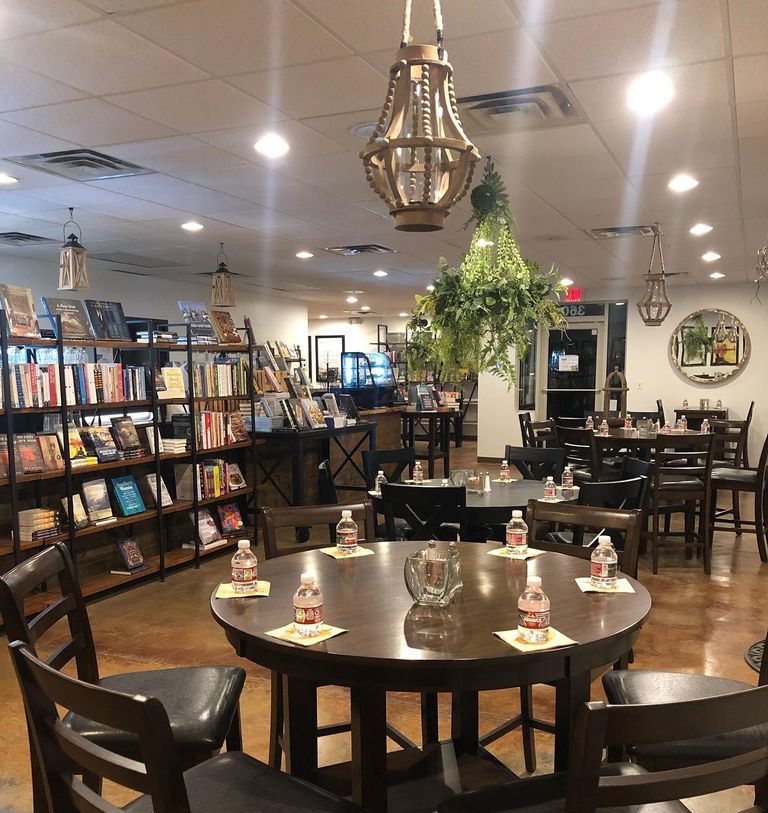

 The American Booksellers Association has announced the names of 78 booksellers who will receive scholarships to attend Winter Institute next February in Seattle, Wash.,
The American Booksellers Association has announced the names of 78 booksellers who will receive scholarships to attend Winter Institute next February in Seattle, Wash., 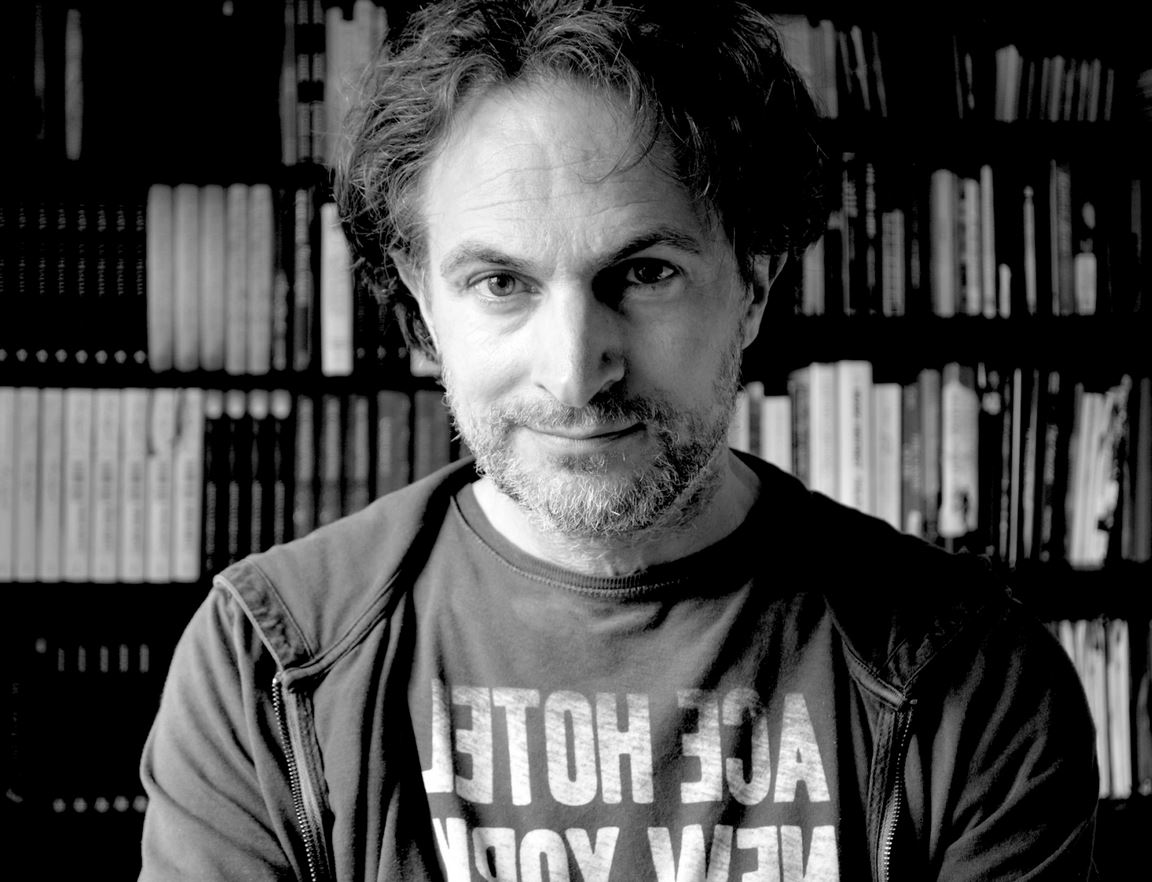
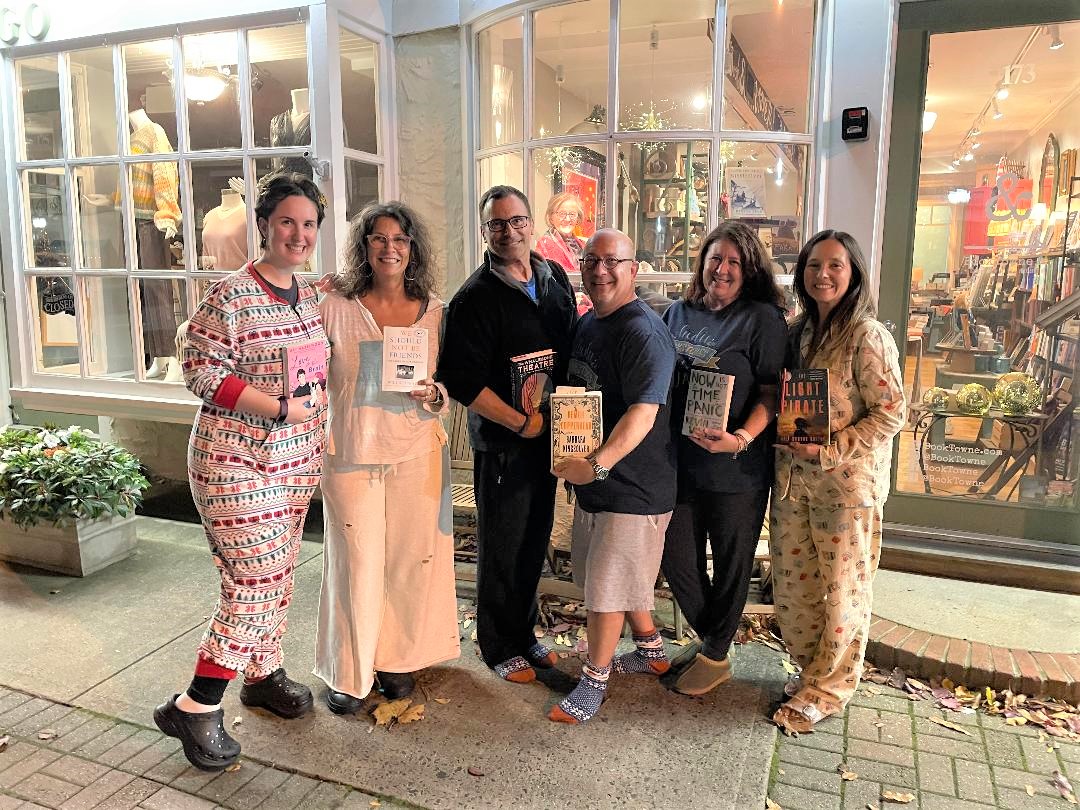 Last weekend, at
Last weekend, at 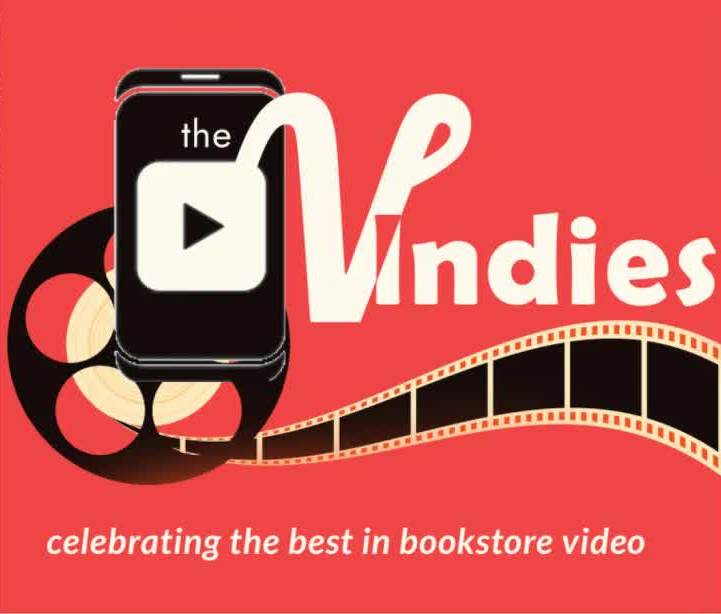
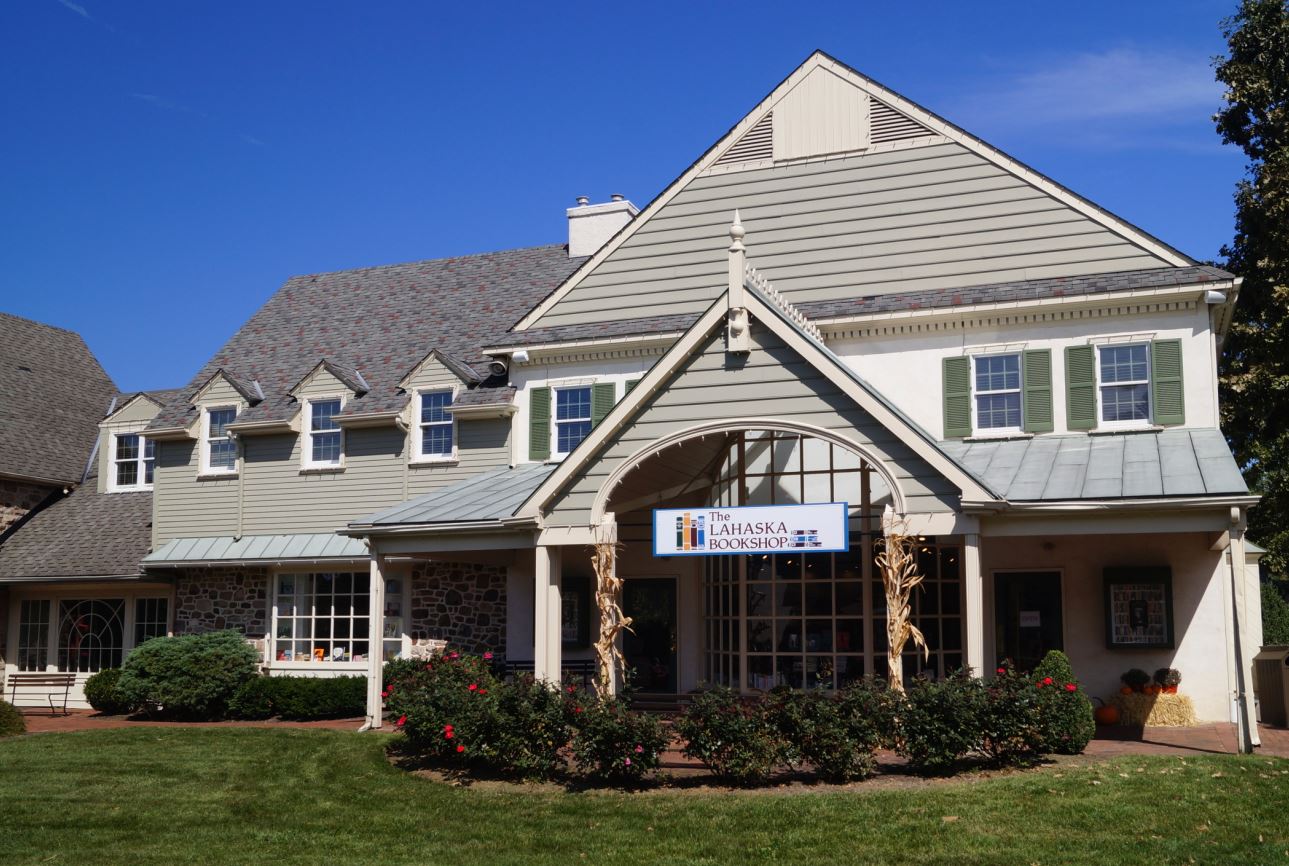 Congratulations to
Congratulations to 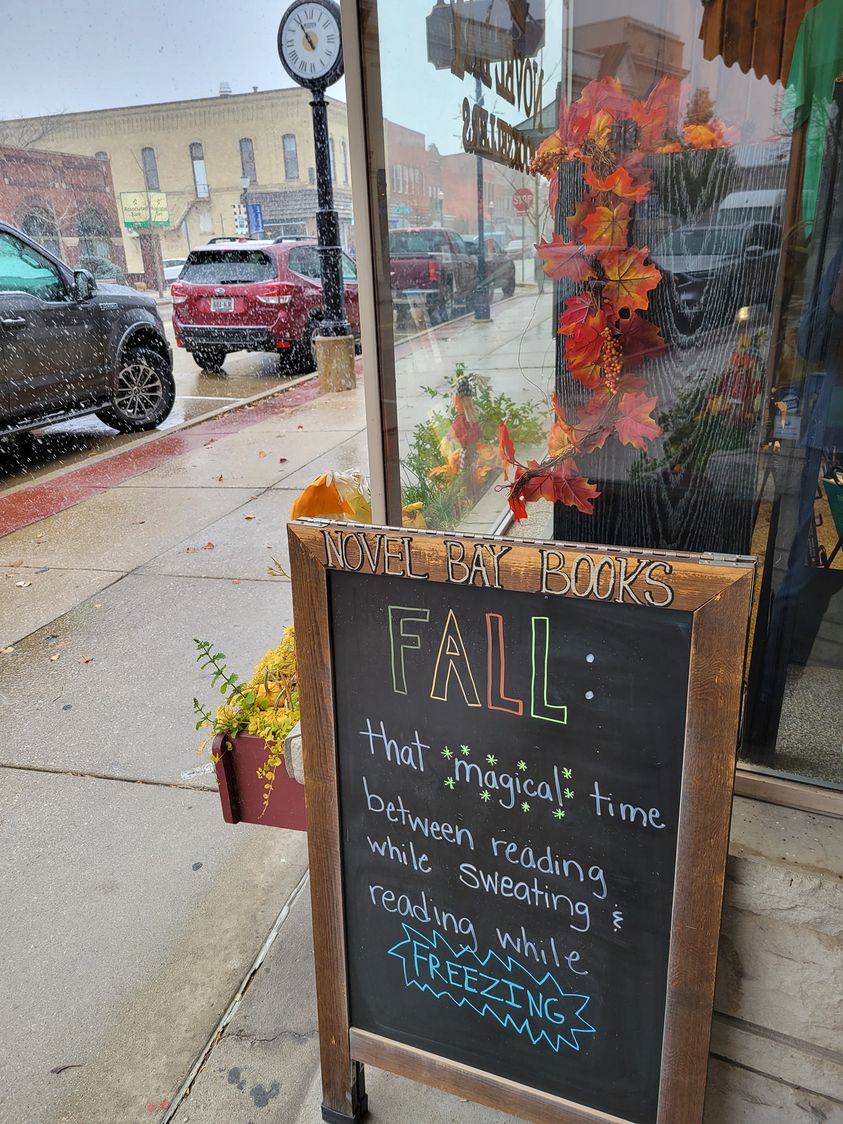 "It's a good day for a book,"
"It's a good day for a book," 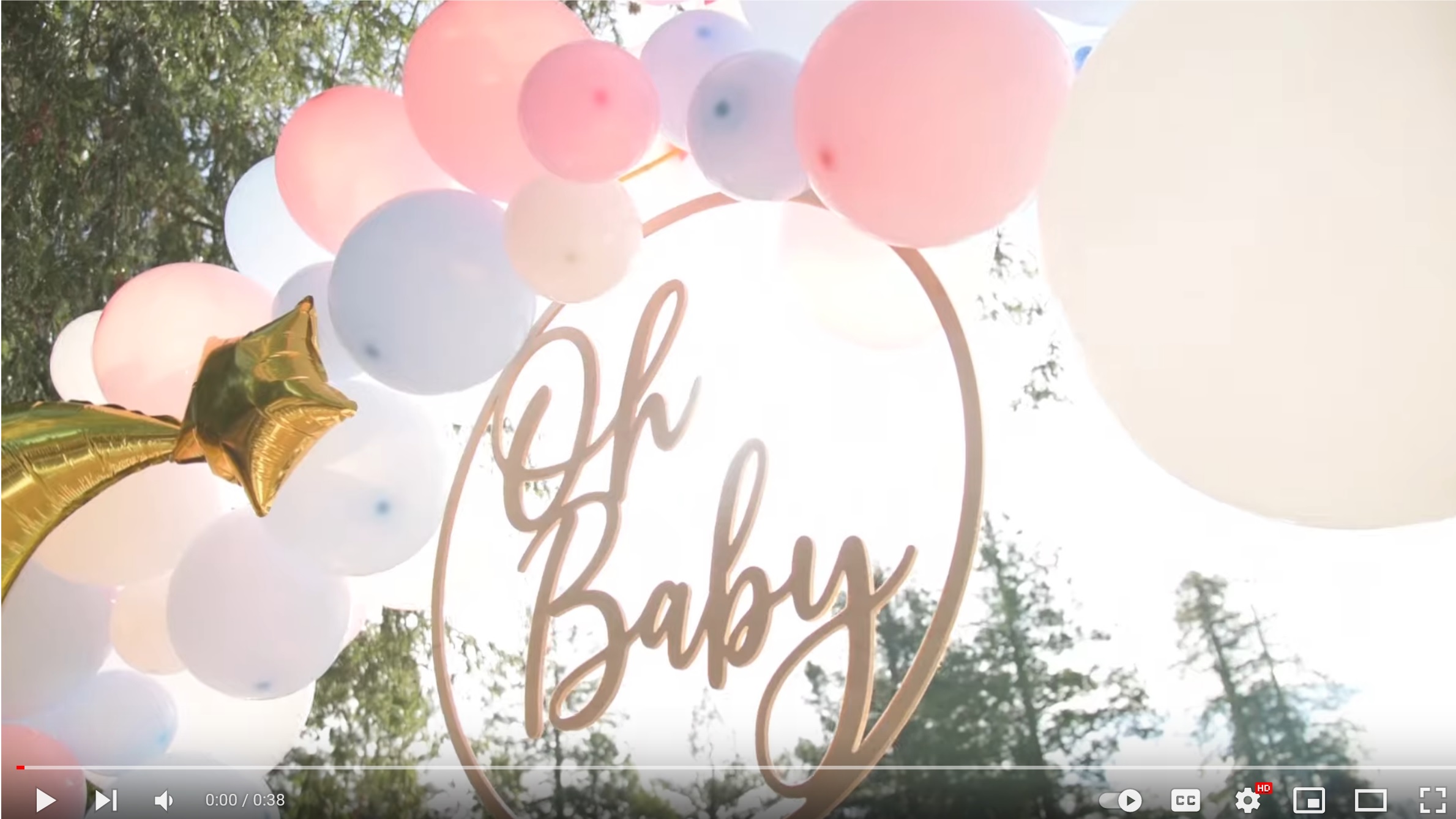 Built to Move: The Ten Essential Habits to Help You Move Freely and Live Fully
Built to Move: The Ten Essential Habits to Help You Move Freely and Live Fully
 Book you're an evangelist for:
Book you're an evangelist for: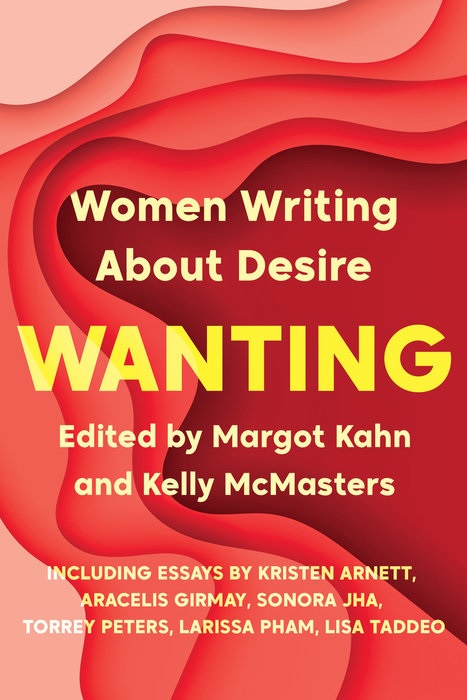 In Wanting, writer-editors Margot Kahn and Kelly McMasters have collected 33 deeply intimate and thoughtful essays by women writers on the range of what constitutes desire. In "Sex in the Suburbs," Angela Cardinale relays the yearning and loneliness of dating during the pandemic. In "An SUV Named Desire," Jennifer De Leon digs into her longtime goal of owning an SUV and its ties to her experience growing up in a working-class immigrant family. While some stories, like these, focus on longing, others, like "Allergic" by Tara Conklin and "Splitting the World Open" by Lisa Taddeo, take a more deconstructive view: exploring what it means to watch desire deplete itself or observing the destructive effects that desire and envy can have on compassion, respectively.
In Wanting, writer-editors Margot Kahn and Kelly McMasters have collected 33 deeply intimate and thoughtful essays by women writers on the range of what constitutes desire. In "Sex in the Suburbs," Angela Cardinale relays the yearning and loneliness of dating during the pandemic. In "An SUV Named Desire," Jennifer De Leon digs into her longtime goal of owning an SUV and its ties to her experience growing up in a working-class immigrant family. While some stories, like these, focus on longing, others, like "Allergic" by Tara Conklin and "Splitting the World Open" by Lisa Taddeo, take a more deconstructive view: exploring what it means to watch desire deplete itself or observing the destructive effects that desire and envy can have on compassion, respectively.